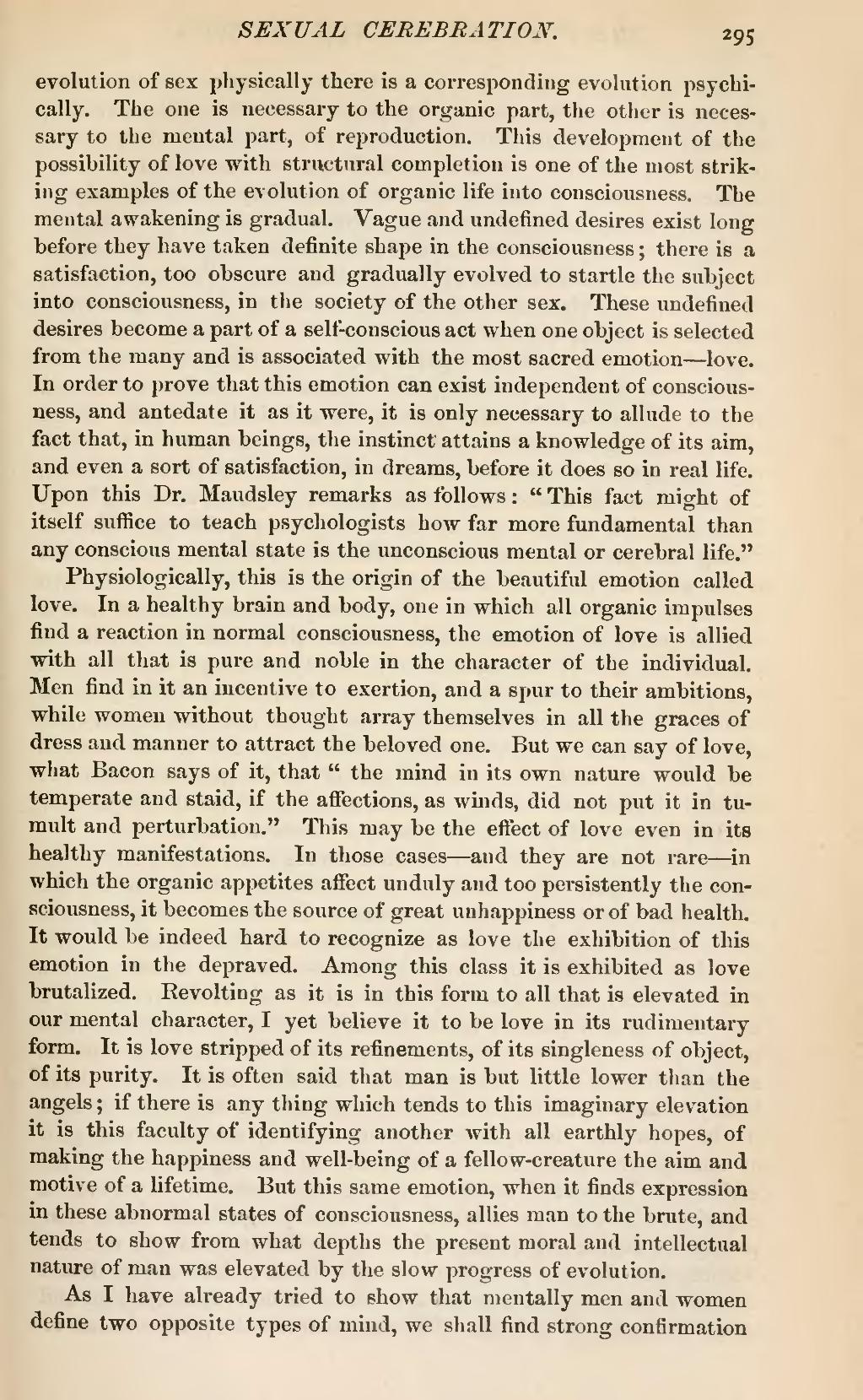evolution of sex physically there is a corresponding evolution psychically. The one is necessary to the organic part, the other is necessary to the mental part, of reproduction. This development of the possibility of love with structural completion is one of the most striking examples of the evolution of organic life into consciousness. The mental awakening is gradual. Vague and undefined desires exist long before they have taken definite shape in the consciousness; there is a satisfaction, too obscure and gradually evolved to startle the subject into consciousness, in the society of the other sex. These undefined desires become a part of a self-conscious act when one object is selected from the many and is associated with the most sacred emotion—love. In order to prove that this emotion can exist independent of consciousness, and antedate it as it were, it is only necessary to allude to the fact that, in human beings, the instinct attains a knowledge of its aim, and even a sort of satisfaction, in dreams, before it does so in real life. Upon this Dr. Maudsley remarks as follows: "This fact might of itself suffice to teach psychologists how far more fundamental than any conscious mental state is the unconscious mental or cerebral life."
Physiologically, this is the origin of the beautiful emotion called love. In a healthy brain and body, one in which all organic impulses find a reaction in normal consciousness, the emotion of love is allied with all that is pure and noble in the character of the individual. Men find in it an incentive to exertion, and a spur to their ambitions, while women without thought array themselves in all the graces of dress and manner to attract the beloved one. But we can say of love, what Bacon says of it, that "the mind in its own nature would be temperate and staid, if the affections, as winds, did not put it in tumult and perturbation." This may be the effect of love even in its healthy manifestations. In those cases—and they are not rare—in which the organic appetites affect unduly and too persistently the consciousness, it becomes the source of great unhappiness or of bad health. It would be indeed hard to recognize as love the exhibition of this emotion in the depraved. Among this class it is exhibited as love brutalized. Revolting as it is in this form to all that is elevated in our mental character, I yet believe it to be love in its rudimentary form. It is love stripped of its refinements, of its singleness of object, of its purity. It is often said that man is but little lower than the angels; if there is any thing which tends to this imaginary elevation it is this faculty of identifying another with all earthly hopes, of making the happiness and well-being of a fellow-creature the aim and motive of a lifetime. But this same emotion, when it finds expression in these abnormal states of consciousness, allies man to the brute, and tends to show from what depths the present moral and intellectual nature of man was elevated by the slow progress of evolution.
As I have already tried to show that mentally men and women define two opposite types of mind, we shall find strong confirmation
